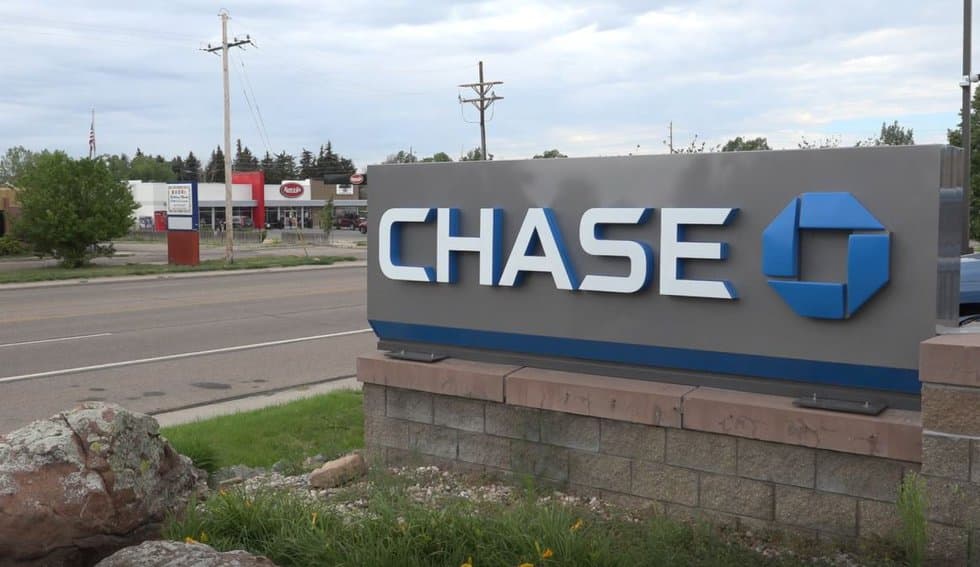Are you a parent wondering when your child can get their hands on a shiny new debit card? Or maybe you’re a teen wondering “what age can I get a debit card?”
It’s a great question … Because asking how old do you have to be to get a debit card shows that you’re either:
- A teen thinking deeply about your financial future.
- You’re a parent trying to teach your child about spending and saving.
Either way, I’ve got you covered. To help you out, I’ll guide you through the age requirements and highlight some fantastic debit card options for young, aspiring financial wizards. Plus, I’ll clue parents and guardians in on a few great offers, too.
Minimum Age for Debit Card: The Bottom Line
If the question is “What age can I get a debit card?”, here’s the bottom line:
- Most banks want you to be at least 18 years old to open your own debit card
- HOWEVER, many banks offer accounts for teens and kids, provided there’s adult supervision
- These accounts can sometimes have sneaky fees or questionable security. That’s why I did the hard work for you and sorted through to find the very best ones.
Keep reading to get the full scoop on the minimum age for debit card for kids, the best accounts currently out there, and the pros and cons you need to know.
In the market for a kids’ debit card? Our top pick is GoHenry.
GoHenry offers an excellent option for parents who not only want to give kids access to money, but resources to help children learn about money management and good saving habits.
The financial literacy aspect of GoHenry sets it apart from others. Parents get full control of the account, allowing for customized limits, allowance allocation, and the ability to incentivize specific activities like chores.
How Old Do You Have to Be to Own a Debit Card?
Let’s get right to the point. The answer to “how old do you have to be to own a debit card?” actually isn’t set in stone and can vary from bank to bank.

But generally speaking, most banks want you to be at least 18 years old before they hand you that shiny new debit card.
But don’t lose hope! The minimum age for debit card for kids can be much lower than 18. This is because many banks now have special accounts and cards specifically tailored for the younger crowd – starting as early as 6 years old.
Of course, these special accounts usually come with a catch: parental supervision. A guardian will have to keep an eye on things to make sure the card is being used responsibly.
Speaking of responsibility, there’s more you should know…
Kids’ Debit Cards: Important Considerations
Before opening a debit card for kids, here’s what you’ll want to be aware of:
- Keep an eye out for fees. Some kids’ debit cards come with monthly maintenance fees or transaction fees that can eat into hard-earned cash. Be sure to read the fine print.
- Age requirements are another key factor. There’s no simple answer to “how old do you have to be to own a debit card” because different banks and providers have their own rules about how old you need to be. As mentioned earlier, the typical age is 18, but some banks (we’ll reveal our favorites below) offer special accounts for younger kids, but usually with parental supervision and controls in place.
- Speaking of controls, parental oversight is crucial. If you’re a parent or guardian, you’ll want to make sure the card comes with features that let you monitor your child’s spending, set limits, and maybe even block certain types of transactions. It’s all about striking that balance between independence and responsible money management.
Kids’ Debit Cards: Pros and Cons
Debit cards can be powerful tools for teaching financial responsibility and providing kids with a sense of independence. But like anything, they come with their own set of advantages and disadvantages.
Let’s explore the pros and cons further to help you make an informed decision about whether a kids’ debit card is right for your family.
Pros:
- Teach financial responsibility and money management skills from an early age
- Convenient for allowances and teaching budgeting
- Parental controls allow monitoring and restrictions on spending
Cons:
- Some cards may come with monthly or annual fees
- Limited spending options and merchant acceptance compared to regular debit cards
- Potential risks associated with online transactions and security
Top Picks If You Meet the Minimum Age For Debit Card
If you do meet the minimum age for a debit card, here are some of the best options out there:
1. GoHenry – Best for Parental Control
- Overall rating: 4/5
- Fees: $4.99/month
- Minimums: $30 minimum deposit
- Features: Parental controls, limits, allowances, and more.
- Age requirements: Ages 6-18
- Safety: FDIC-Insured
GoHenry is an excellent choice for parents looking to teach their children about money management. It offers a user-friendly app, parental controls, and tools to encourage responsible spending and saving habits.
But what really sets GoHenry apart is its focus on teaching financial literacy. Parents have full control over their child’s spending, allowing them to set limits, allocate allowances, and even incentivize certain behaviors, like completing chores or achieving savings goals.
It’s a fantastic way to introduce your child to the world of money management in a safe and controlled environment.
And if you’re wondering how old do you have to be to get a debit card from GoHenry, they’re available starting as early as age 6.
Pros | Cons |
Real-time monitoring and spending limits | Monthly subscription fee |
Ability to set chores and allowance | Limited availability outside of the United States and the United Kingdom |
Educational features to teach financial skills |
2. Copper Banking – Best for Education & Goalsetting
- Overall rating: 4/5
- Fees: $4.95/month
- Minimums: No minimum account balance
- Features: Parental controls, spending limits, budgeting tools, savings goals
- Age requirements: Open at any age
- Safety: FDIC-insured
Copper Banking is another standout option that empowers teenagers to take control of their finances and learn valuable money management skills.
With Copper Banking, teenagers get access to a checking account and a debit card, giving them the freedom to make purchases and manage their own money.
If you’re wondering how old do you have to be to get a debit card because you want to teach your child about saving and spending early on, then it’s hard to beat Copper Banking. They have no minimum age requirements as long as there’s a parent supervising the account.
What sets Copper Banking apart is its comprehensive set of tools for budgeting and saving. It provides teenagers with a clear view of their spending habits, allows them to set savings goals, and even offers rewards for reaching milestones.
Pros | Cons |
No monthly fees or minimum balance requirements | Availability limited to certain states in the United States |
Parental controls and spending limits | No physical branches |
Budgeting tools and savings goals |
3. Chase First – Best for Existing Chase Customers
- Overall rating: 5/5
- Fees: $0 monthly maintenance fees
- Minimums: No minimum deposit to open
- Features: Access to Chase’s wide network of banks & ATMs
- Age requirements: 6-17
- Safety: FDIC-insured
Chase First provides kids 6-17 with a debit card that connects to a banking account owned by a parent or guardian.

The Chase First account comes with features designed for everyday use, making it easy to handle transactions, track spending, and stay on top of finances.
There’s no monthly service fee, and if you’re an existing Chase customer you can easily manage both your personal account and your kid’s Chase First Bank account in one spot with the Chase Mobile® app.
Pros | Cons |
No monthly service fees for up to five years | Potential fees for certain transactions |
Access to Chase’s extensive network of ATMs and branches | Doesn’t support peer-to-peer transactions like Zelle, Venmo, PayPal, or Cash App |
Mobile banking and digital tools for easy account management |
4. BONUS: Acorns Early – Best for Early Investing
- Overall rating: 5/5
- Fees: $5 / month
- Minimums: $5 minimum investment
- Features: Checking Account, Investment Account
- Age requirements: Any child under age 18
- Safety: SIPC Insured
When it comes to early investing, Acorns Early doesn’t offer a kids’ debit card. But it’s a winner nonetheless thanks to a full suite of investing tools.
Acorns Early offers a unique combination of a custodial account that can be combined with a parent or guardian’s debit card. This means you can start building a nest egg for your little ones from an early age.
Acorns Early not only helps you grow your child’s savings but also teaches them the value of long-term financial planning. With Acorns’ user-friendly platform and automated investment features, it’s easier than ever to set aside funds for their future.
Acorns Early comes with Acorns Checking — the checking account and debit card that invests for you (or your child) by rounding up purchases. It’ll give your child a head start in understanding the power of compound interest and the benefits of long-term wealth creation.
Pros | Cons |
Investment opportunities to grow wealth over time | Monthly fees for investment accounts |
Automatic round-up feature for easy savings | Limited investment options compared to regular brokerage accounts |
Access to financial education resources |
Final Word: How Old Do You Have to be to Get a Debit Card?
Debit cards can be valuable tools for teaching financial responsibility and independence to children and teenagers. They provide a practical way for kids to learn about money management, budgeting, and saving.
Our top picks, Go Henry, Copper Banking, Chase First, and Acorns Early, each offer unique features and benefits for different age groups and goals. Evaluate them based on your child’s specific needs and your preferences as a parent or guardian.
- Best for Parental Control – GoHenry
- Best for Education & Goalsetting – Copper Banking
- Best for Existing Chase Customers – Chase First
- Best for Early Investing – Acorns Early
And if you’re still wondering how old do you have to be to get a debit card, those options above all range from having no minimum age requirement, to starting as early as 6 years old! There just needs to be a parent supervising the account.
If you’re a parent, remember that a debit card is one of the best opportunities to educate your child about money management. Use it as a means to teach budgeting, saving, and wise spending habits. Engage in conversations about responsible financial practices and instill a sense of financial literacy from an early age.
With proper guidance and support, a debit card can become a stepping stone toward financial independence and a valuable life lesson that will serve any child or teen well into adulthood.
FAQs:
Is there a minimum age for a debit card?
Yes, there is a minimum age requirement for a debit card, usually set by the financial institution. It commonly ranges from 16 to 18 years old.
Can my 11 year old have a debit card?
It depends on the bank or provider. Some offer special accounts and debit cards for children under 16, with parental supervision.
Can a 13 year old open a debit card?
Yes, certain banks and providers offer debit cards to individuals as young as 13 years old. However, parental involvement or joint ownership might be required.
Can my child use my debit card?
Typically, children cannot use their parents' individual debit cards. However, joint accounts or special authorized user arrangements may allow limited access for specific transactions under parental supervision.
Where to Invest $1,000 Right Now?
Did you know that stocks rated as "Buy" by the Top Analysts in WallStreetZen's database beat the S&P500 by 98.4% last year?
Our July report reveals the 3 "Strong Buy" stocks that market-beating analysts predict will outperform over the next year.










